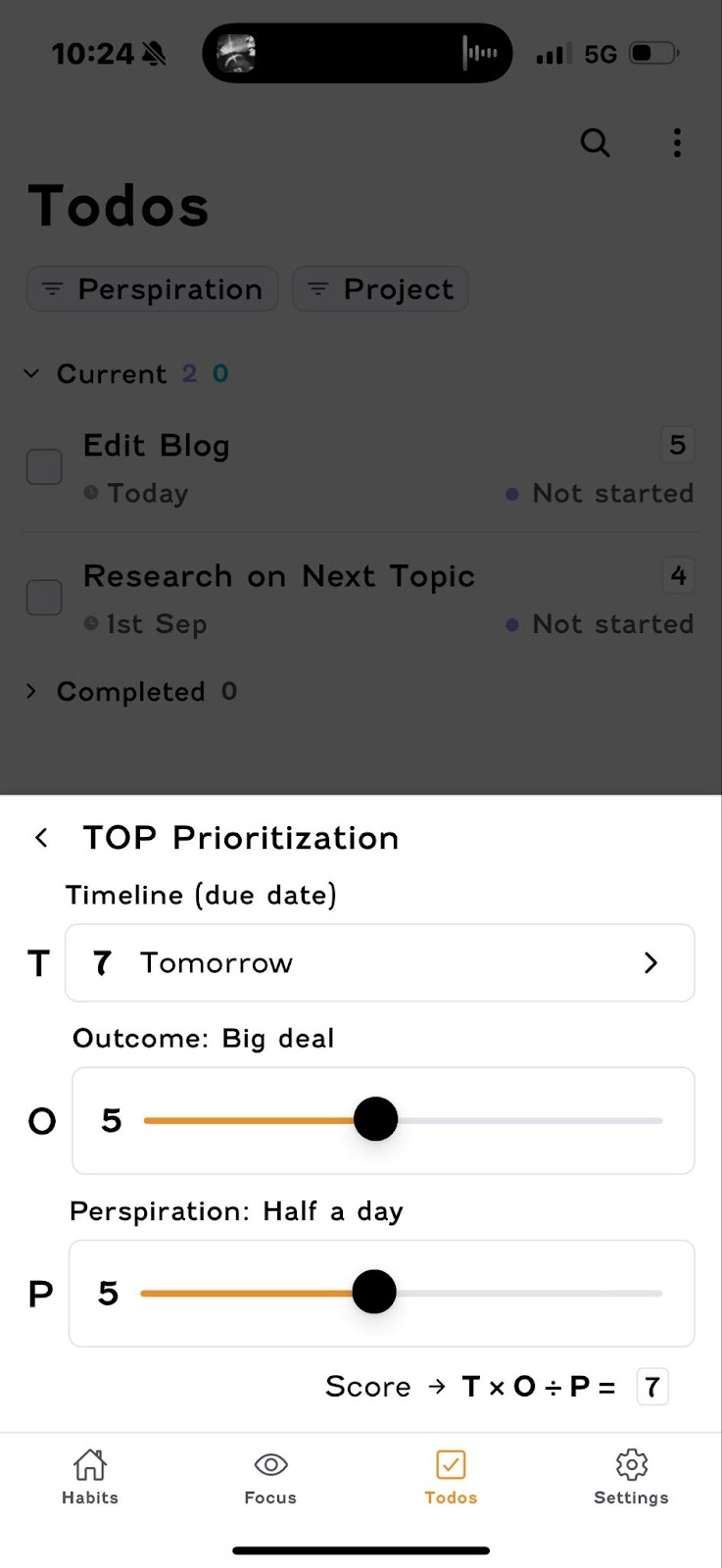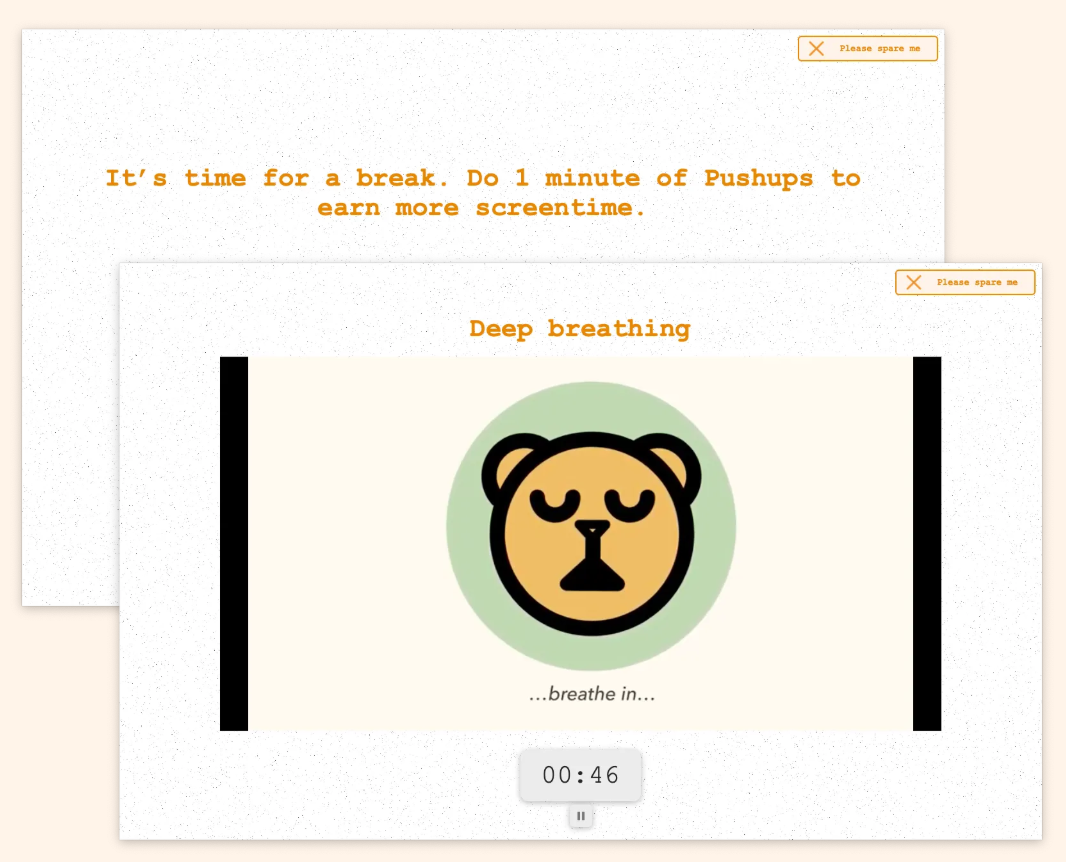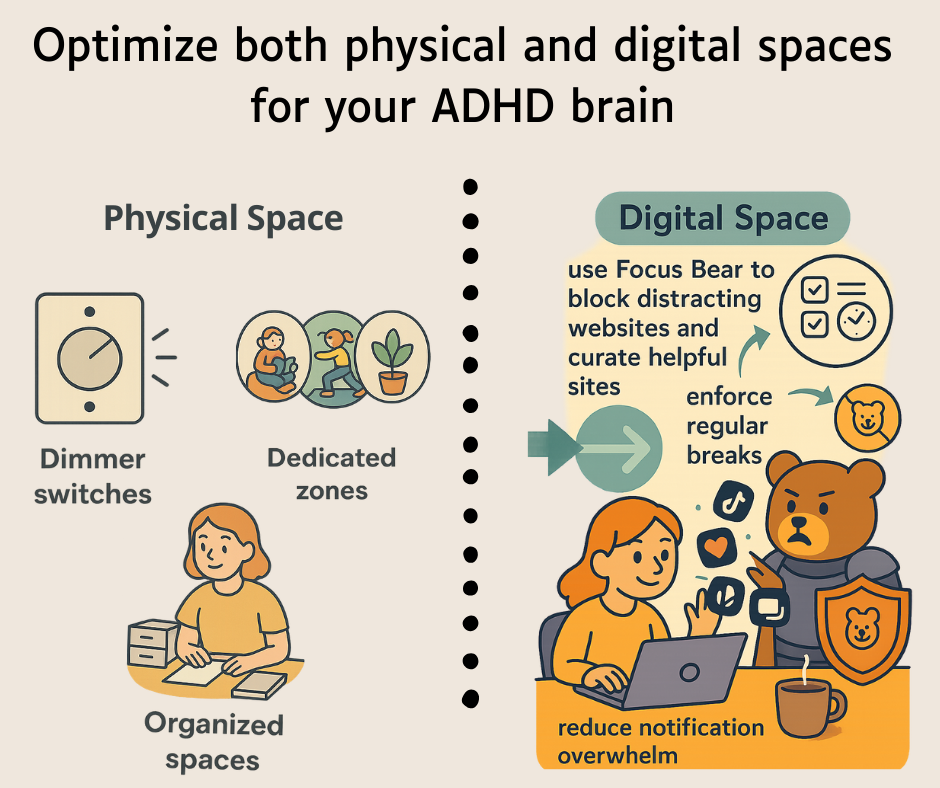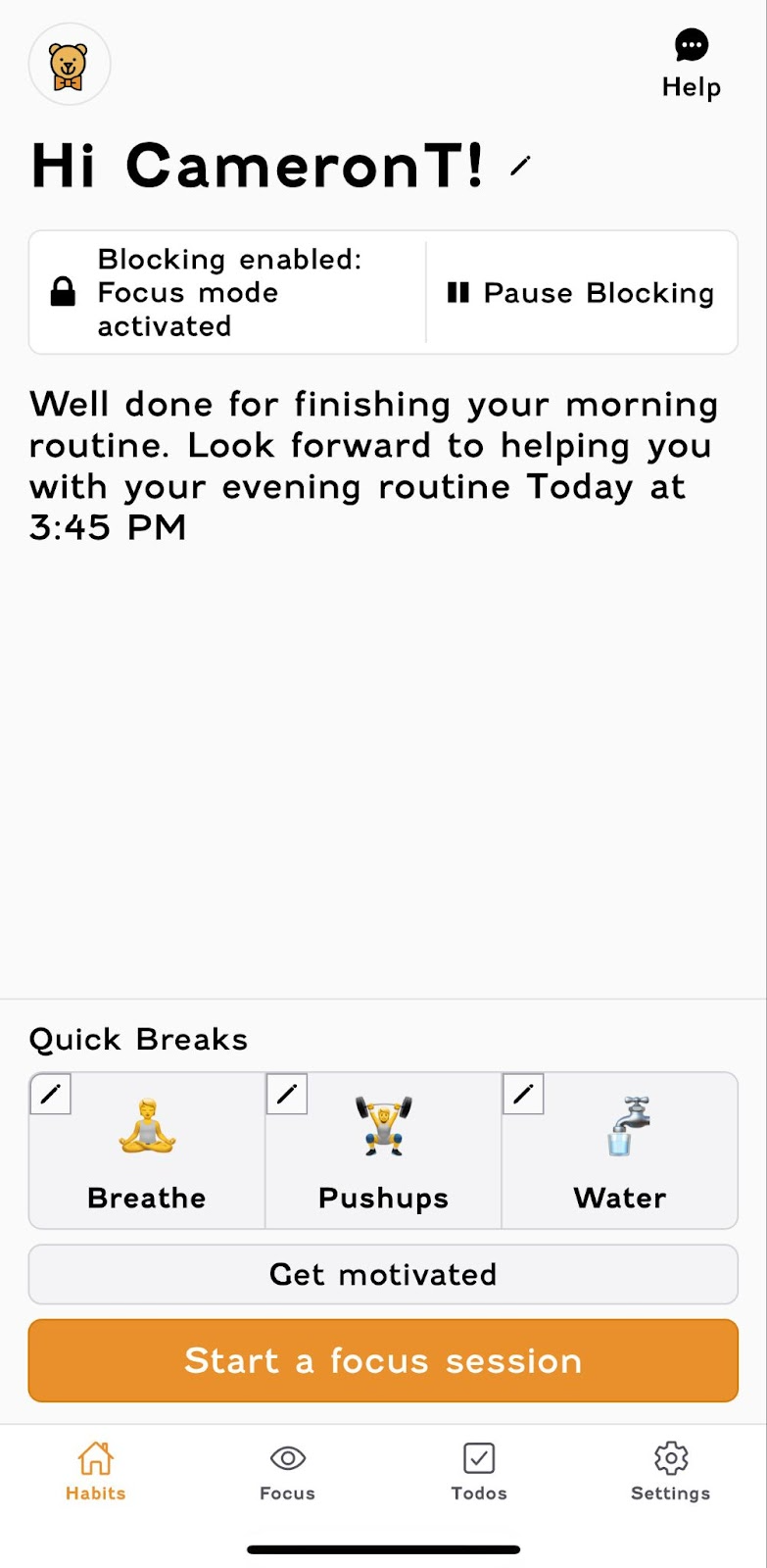Imagine this scenario: The coffee shop is louder than usual. Your phone won't stop buzzing. The shirt you put on this morning just feels like it doesn’t sit right on you.
Then, just when you’re holding it all together, you notice your teammate has made a “small” edit to one of your slides.
Suddenly, you snap. Not because of what they did—but because your ADHD brain has reached sensory overload.
I understand this feeling. During an especially stressful week—with mounting deadlines and personal stress—I became irritable with everyday sounds.
Construction noise outside my building, which had never bothered me before, suddenly became unbearable. I found myself ready to explode over tiny inconveniences.
If you have ADHD, this scenario probably feels familiar. What others might see as "being cranky" is actually your nervous system responding exactly how it is supposed to.
Let's explore the science behind ADHD sensory anger - and 7 strategies to prevent it.
30 day money back guarantee
No Credit Card Required Upfront
Science Section:
The ADHD Brain on Overload:
Your Neurospicy brain processes sensory information differently. While Neurotypical brains filter out the background noises and distractions, yours let everything in.
The Research: Nearly 50% of people with ADHD report sensory processing differences (Miller et al., 2017). Your brain struggles to prioritize important information over irrelevant noise due to attention regulation deficits (Karalunas et al., 2018).
Anger Pathways:
- Sensory input floods in (sounds, lights, textures)
- Your brain can't filter it properly
- You get cognitively overloaded
- Your emotional regulation crashes
- Anger explodes as a fight-or-flight response
The weirdest part? You might actually crave stimulation sometimes - like needing background music to focus - but then get completely overwhelmed by unexpected noise. It's this constant push-pull that makes sensory management so tricky. (Engel-Yeger & Ziv-On, 2011).
The Good News About Understanding This
Once I realized this wasn't a personal failing but actually just neurobiology, everything started making more sense.
The research backs this up too - executive functioning challenges in ADHD are directly linked to emotional dysregulation (Barkley, 2015).
Your brain is working overtime to process information that others automatically tune out. That's exhausting! No wonder you snap when one more thing gets added to the pile.
7 Prevention Strategies
1. Tracking your Sensory-Anger Patterns:
The Idea: Your ADHD brain's tolerance changes daily based on stress and energy levels.
How to do it: Use your phone to track what sets you off for just one week - sounds, lights, textures that precede anger.
Why this works: Patterns reveal your personal sensory profile (Miller et al., 2017)
Focus Bear’s Tip: Have a notebook on standby so you can note whenever feeling irritated.
2. The "Sensory Spoons" Method
The Idea: You wake up with limited sensory energy each day—think of these as "Sensory Spoons" where each spoon represents your capacity to process sensory information.
How to do it: Identify high-cost activities (crowds, multitasking, notifications). Schedule only one per day with recovery time.
Why it works: Prevents sensory overload by managing your daily "dose" of stimulation.
Focus Bear's tip: Focus Bear app has a built-in Sensory Spoon calculator that helps you track this. You can test it out using the to-do list feature to see how different activities impact your sensory budget.

Figure 1: TOP (Sensory Spoons) calculator
3. Build in "Transition Time"
The idea: Your brain hates sudden environment changes and needs time to adjust.
How to do it: Add 5-10 minutes between activities to reset your brain. Use headphones, take quick walks, or just sit quietly before entering demanding spaces.
Why it works: Prevents sensory buildup from carrying over between tasks and locations.
Focus Bear’s tip: The Focus Bear app has built-in micro-breaks feature to help

4. Fidget, Fidget, Fidget!
The idea: Your neurospicy brain needs movement to concentrate and stay regulated.
How to do it: Use stress balls, fidget toys, leg bouncing, or doodling during meetings and phone calls.
Why it works: Movement helps ADHD brains filter distracting stimuli (Sarver et al., 2015).
Focus Bear tip: Find silent fidgets for work—your focus is worth protecting, even in professional settings.
5. Master the "Emergency Brake”
The idea: Stop the overwhelm-to-anger spiral before it peaks with a simple reset technique.
How to do it: Stop everything. Name what's bothering you out loud. Pick one thing to address first.
Why it works: Naming the problem gives your brain something concrete to focus on instead of chaos.
Focus Bear tip: Yes, I agree talking to yourself out loud sounds weird, but it genuinely helps your brain organize. If you check out the app, we have box breathing exercises available to help cool you down.
6. Get Comfortable Setting Boundaries
The idea: Your sensory needs are valid and worth protecting - but only you can advocate for them.
How to do it: Use direct scripts like:
"I focus better in quieter spaces" or
"I'll need breaks during long events."
Practice saying them until they feel natural.
Why it works: Clear communication prevents misunderstandings and gets you the accommodations you need.
7. Design Your Personal Sensory Safehouse
The idea: Your environment shapes your sensory experience - optimize both physical and digital spaces for your ADHD brain.
How to do it:

Figure 2: Physical Space and Digital Space Optimization
Why it works: Reducing environmental distractions - both visual and digital - gives your brain fewer sensory inputs to filter and process.
Focus Bear tip: Focus Bear's quick breaks between focus sessions prevent that "I've been hyperfocused for 4 hours and now everything irritates me" crash.

Figure 3: Focus Bear Quick-Breaks
Next Steps
Your Action Plan:
- Pick ONE strategy to try this week
- Track your results for 5 days
- Share this with someone who supports you
Remember: Sensory anger isn't a character flaw - it's your ADHD brain responding predictably to overload.
Don’t Tackle this alone: Focus Bear's team specializes in helping neurodivergent brains like yours manage screen-related sensory triggers.
Contact our support team for personalized setup guidance - we understand exactly how digital chaos contributes to sensory anger.




